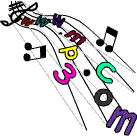MPEG Audio Layer 3 (MP3) Technical Guide
Created | Updated Jan 7, 2012

With the advent of the Internet, there is a desire for more and more information to be transmitted across phone lines. Audio information is one form which is increasingly downloaded, be it a sampler for a band's album, a radio programme, or sound as part of a video. As bandwidth in a telephone wire is limited, this has led to a need for information (including audio) to be compressed.
The traditional method of storing digital audio, used in CDs and digital TV, samples the amplitude of the sound a set number of times per second, and records this. The precision of the amplitude is determined by the number of bits used to store the amplitude. So the bandwidth (or memory) consumed by the audio signal is dependent on three factors: the number of samples taken per second (Frequency), the number of bits used to store the amplitude (Bit Depth) and the length of the signal (Time). When we know these three things, the memory used becomes simple to calculate:
Memory = Frequency * Bit Depth * Time.
Additionally, if the signal is in stereo, then this must be doubled as two signals are in fact used.
This equation can be used to demonstrate why transmitting high-quality audio across the Internet requires compression. CD audio uses 16-bit Stereo sampled at 44,100 Hz. This means that one minute of CD audio uses 44,100 * 16 * 60 * 2 = 84,672,000 bits, or slightly over 10 megabytes. A standard 56Kbps modem would thus take 84,672,000 / 57344 = 1477s or about 25 minutes! 25 minutes is obviously a long time to wait for one minute of audio, so an alternative had to be found. That alternative was MPEG Audio Layer 3, or MP3.
The Codec
The human ear can only hear a limited range of frequencies. The codec therefore removes all sounds outside this range, as they will not be heard anyway.
A psycho-acoustic model is then applied to the sound. If a high-pitched sound is played, then the decibel threshold for sounds of lower frequencies to be made audible is increased. The psycho-acoustic model removes any and all sounds that will be 'masked' in this way.
The next stage is Joint Stereo. The human brain is unable to place the directions of sounds at low frequencies, so sounds below this threshold are encoded in mono. If some sections of the signal are still above the required bitrate, then the quality of these sections will be decreased. Finally, Huffman encoding is applied. This replaces all bitcodes with unique bitcodes of varying length according to the frequency of the pattern. For instance, the most common bit pattern would be encoded as '01', while the next common would be '010' and the next would be '011', and so on.
Social, Economic and Environmental Effects
The social effects of MP3 cannot be underestimated. It is allowing new, unsigned bands to distribute free music over the Internet. Those with minority tastes can obtain experimental or alternative music far more easily than previously, as mainstream record shops do not tend to stock these genres of music. Portable hardware MP3 players may now be purchased at prices similar to those of top-of-the-range portable CD players, and the price is still falling. Sites such as MP3.com distribute free MP3s from a multitude of unsigned bands. Others, for example BURBS (British Underground Rock Bands), sell albums from unsigned bands, with a free MP3 track from some albums, allowing the consumer to sample the band's music before purchase. Some mainstream acts, including the Beastie Boys, David Bowie and Prince among others, have also taken to distributing some free tracks in order to promote albums. In fact, David Bowie allowed his album, Hours... to be downloaded for free. There is, unfortunately, a darker side to this revolution. Illegal 'WArEz' sites (often run by 'dark side' hackers, or crackers) distribute tracks illegally 'ripped' from the albums of established artists, who subsequently lose out on royalties.
The economic implications of MP3 are very closely tied to its social effects. The major record companies are essentially running scared of the effect this is likely to have. They refuse to sell MP3 albums, except in those cases where the artist has enough clout (ie Bowie) to force them. They are hurriedly trying to establish a standard for a 'secure' music format that cannot used on more than one machine. The software giant Microsoft recently attempted, and failed, to do just that. Their format, Windows Media Technologies 4, was 'cracked' within less than 24 hours of its release. In fact, the same techniques that were used to crack WMT4 can be applied to any music format, no matter how secure. Some analysts believe that MP3 may spell the end for the traditional record company. Most, however, foresee the record companies realising that they cannot win this particular war, and beginning to distribute MP3 albums themselves. In fact, in this age of the £100 CD writer, MP3 is probably not that much less secure than the CD itself.
Conclusion
In conclusion, MP3 can compress digital audio by a high factor. This makes it ideal for the distribution of audio across the Internet. It has found popularity among unsigned and experimental bands, as well as some established artists who are advocates of the technology. Although the record companies refuse to back it, there is little they can do to stem the tide. They have found themselves very much in the position of King Canute1, although this will undoubtedly change in the long term.
The MP3 file format is an extremely efficient compression standard, which has already seen off challenges from WMT4 and other rival standards. Due to its extremely lax licensing terms, MP3 seems unlikely to lose its popularity.

